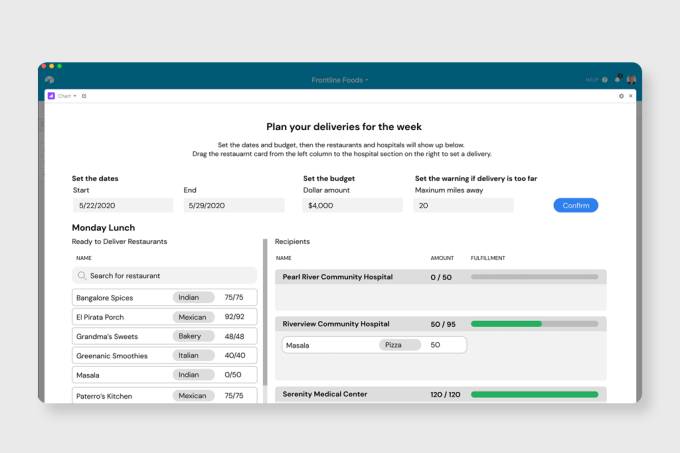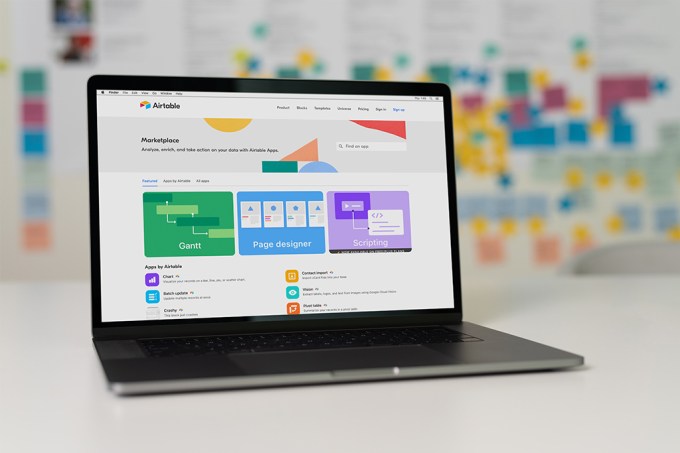Software should help us do our best work — but all too often, it holds us back.
You may have asked a vendor for support, only to be told ‘that’s how it’s supposed to work.’ You might have requested a custom application from your development team, but been denied because they were too busy keeping the lights on. You might even have tried to make do with a project management app or spreadsheet, and ended up losing out on what you really need.
Unfortunately, traditional software development is limited to a small group of specialists. This leaves those of us who can’t code with few options: force-fitting brittle, off-the-shelf solutions to our needs, championing high-priced custom options, or trivializing our business processes to tasks and projects.
But this divide between software makers and software users is actually an artificial one. If we had the right interface to develop software — one as familiar as the most common business apps — everyone could harness the same powers as developers. And, in that world, wouldn’t you choose to create your own software?
Today, that insight is driving the low-code movement: You know what you need. You understand the data that’s most important, the processes you need to scale, and the workflow that’s best for your team. You should be able to build it better than anyone else.
That’s why people are increasingly taking matters into their own hands. In the face of a pandemic, Frontline Foods spun up a fully-fledged nonprofit organization of 300+ volunteers across the United States in a matter of weeks. They created completely bespoke solutions for optimizing meal deliveries to frontline workers, managing donors, and serving dozens of cities, all to fit their completely unique operating model. As their scale and needs evolved, the teams on the ground weren’t reliant on professional developers to keep up. Instead, they were able to shape how their tools evolved, and their volunteer developers focused on creating last-mile functionality via custom apps rather than starting from the ground up.


Here’s another example: Autodesk wanted to create and share a vision of the future across a broad, diverse community, so they built their Autodesk Technology Centers. At any given time, Autodesk now hosts hundreds of participants in Boston, San Francisco, and Toronto. Spreadsheets quickly became overwhelmed by the task of tracking applications and resident information, so they built a reliable, single source of truth for managing communication between program participants, community managers, and the wider organization. They built the bulk of it over a single weekend — again, no coding required.
So what do these organizations have in common? Beyond being driven by uniquely innovative problem-solvers, both Frontline Foods and Autodesk used Airtable, a low-code platform, to build their own software. They’ve joined the 200,000+ organizations who are now using Airtable to build their own solutions, without code. This vision — that people without sophisticated coding skills should be able to create their own applications — is the reason Airtable exists.
Opening up app creation

An estimated 500 million applications will be created by 2023. Unlike the vast majority of their predecessors, most of these apps will be highly specific and tailored to the unique ways that teams work.
Every app starts with a data model. For video production, it’s about assets, casts, locations, and release dates. For recruitment, it’s about candidates, interviews, and schedules.
On top of that data model, you need an interface that’s approachable to everyone on your team. And you’ll want tools that allow for stronger collaboration: account management, user permissions, and features for commenting, sharing, and visualizing information. You’ll likely want your app to integrate with other services your team uses for communications, calendaring, and more.
This is more than just task or project management. It’s software, designed by you. And Airtable’s new platform makes it easy to get started.
With Airtable Apps, you can build entirely customized apps, or install ones shared by a growing community of developers, opening up limitless potential for creativity. You can use Airtable Automations to automatically send customized emails or message notifications, generate reports, perform repetitive steps, and more. With Airtable Sync, you can share information in real time with people in and outside of your organization, choosing exactly what data is shared or hidden while maintaining your single source of truth. And you can orchestrate workflows via integrations with all your favorite tools.
From startups to enterprises, from marketing to operation teams, from video production to cattle farmers — we’ve been inspired by how teams have customized and scaled Airtable for their needs. They haven’t accepted the status quo, or compromised on their apps; together they’ve found a new, better way to work.
Learn more about how teams are dissolving the user-builder divide at Airtable.com.






























